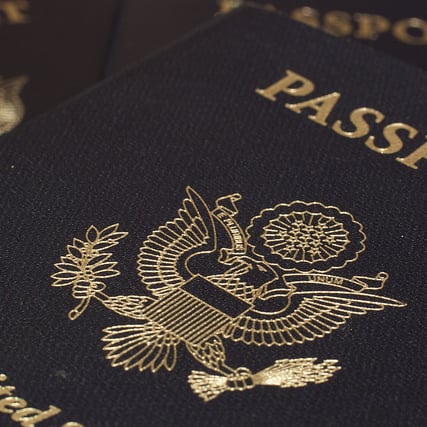Moving Abroad: What Does it Take to Speak Like a Local?
As a citizen of the USA, you are likely to be granted access to some 80% of the countries in the world. Can you get by just speaking English or should you make the effort to learn the local language?
Americans usually travel easily around the world due to historical, geopolitical and economic reasons. Similarly, holders of British, Finnish, German, or Swedish passports can visit as many as 174 out of 219 countries, the 2014 Hanley & Partners Visa Restriction Index shows.
In the following article, we’ll look at what moving to such countries entails, where you should strive to speak the local language, and offer some advice as to where and if you can survive without speaking the local tongue.
Pick Your Destination
It turns out that a great number of the countries whose citizens usually enjoy high acceptance all over the world also accept foreigners as residents.
Tourist destinations such as Greece, attractive career-wise countries such as the United Arab Emirates and popular education hubs and socially secure societies such as Denmark, Germany, Norway and others, all have high immigration rates.
Prosperous countries and booming economies such as Singapore, Australia, Luxembourg, the UK and others are also popular for having large immigrant populations. With more than 23% of legally residing foreign citizens, Switzerland sees one of the highest foreign-to-total ratios in Europe, their latest migration report analyzes.
Pack Up Your Bags and… Dictionary
If you’ve chosen to live as an expatriate in one of those countries “saturated” by foreigners, you’ll find people from disparate countries and will hear all sorts of languages simply by walking down the streets. It’s in these large, metropolitan cities that you’ll be able to survive using the English language alone.
Even so, if you want to become part of society, soak up the local culture and clearly understand the local laws, business habits and banter, knowledge of the official language is a necessity.
In fact, part of the wonder of traveling is the opportunity to get to know new people, traditions and ways as well as explore your destination. So, how about learning some new and exotic languages?
Luxembourg: 3 + 1 Languages
Though it’s not a rare occasion to encounter a small country with several official languages, the linguistic situation in Luxembourg is not particularly common. As the Omniglot tells us, the education starts in Luxembourgish, goes on in German and, in secondary education, is carried out in French.
As a result, as the 2012 Eurobarometer Report reveals, more than 60% of the population are able to speak at least three languages in addition to their mother tongue. It’s no wonder that this is the case in a country with a whopping 44.4% of immigrants and 150 different nationalities make up its population.
Where are the Pitfalls?
Both German and French can be somewhat difficult to master. German, for example, has its notorious nouns, which inflect by gender (masculine, feminine and neutral), case (four of them) and number, meaning that every single noun in German has 16 versions, all used in different occasions.
French, on the other hand, has influenced English so much that both languages share a great number of cognates. This, however, means that there are many false friends, too. To add to the situation, the spelling system of French is complicated and as such can be a challenge for learners, requiring some time and effort to master.
What to Do
In Luxembourg, it is rare to meet someone who doesn’t speak German, French or English. However, if you’re moving to Luxembourg, you should consider learning Luxembourgish.
Luxembourgish is pretty similar to Dutch and German, so your knowledge of these languages should be of much help. For a taste of Luxembourgish, check out this video from Wikitongues:
Singapore: “A Tasty Linguistic Soup”
According to official Singapore Government data, English is one of the four official languages in Singapore alongside with Malay, Mandarin, and Tamil. As the Economist points out, English is the most neutral language in the country, as well as the language of business, and for this reason, it’s also the most common.
Naturally, speakers of English entering the country are in a very advantageous position understanding and being understood by the majority of local residents.
Where are the Pitfalls?
The reputation of Mandarin and Malay as difficult languages can hardly be recast.
Before you plunge into Mandarin, take into account that the Defense Language Institute classifies it as a Category IV (there’s no higher category!) language along with Arabic, Japanese, Pashto and Korean, meaning that an average English learner will need long instructional hours to reach a level of proficiency.
What to Do
On the bright side, government statistics shows that in Singapore–one in three people is either an immigrant or a permanent resident of non-native origin.
So, as a US national, you are not only very likely to get access to a country which traditionally welcomes foreign talent, but you’re also very likely to blend into the population and immerse yourself into the local culture using English to communicate.
Still, learning Malay or Mandarin can help businessmen get to know the local business climate better and work with local partners more efficiently. Anyone who travels to the Far East would stand to gain a lot by learning at least the basics of either of these languages. Give Mandarin a listen and see if you like the sound of it:
Greece: Ancient and Modern
Craving sun, hot summer nights, and tasty Mediterranean food? You might be tempted to pack up your bags and move to this Balkan country. As with many things Greek, language is rooted in long years of tradition, which makes it somewhat hard to master.
Being an independent development in the Indo-European family, and despite the fact that it has greatly influenced most European languages, Greek differs considerably from any other language spoken in Europe and around the world.
Where are the Pitfalls?
You know the phrase “it’s all Greek to me”? A Category III language, the Greek language confuses foreigners with its bewildering alphabet (even more terrible when hand-written) and just as perplexing, a total lack of a correlation between Greek and English letters and sounds.
What to Do
Know the facts before leaving for Greece. The truth is, more than 90% of the population speak Greek. As the 2012 Eurobarometer shows, “respondents in Greece (2%) are the least likely to have started learning a new language recently”, leaving you no choice but to learn Greek before you move there.
Well, think of it as the small price you have to pay for the sun, delicious food and an emerald sea. Get a head start by checking out some no-fuss Greek conversation starters before your big move abroad.
United Arab Emirates
While it is relatively hard for the Emirati people to travel the world, having access to merely one third of its countries, the UAE has seen an influx of expatriates, with as many as 83.7% of the population coming from abroad, as 24/7 Wall Street sums up.
Where are the Pitfalls?
Although Arabic is currently the world’s top language to learn, it’s hard. And it doesn’t get any simpler with time. There are significant differences in pronunciation of otherwise familiar sounds such as /p/ and /b/. There is also the flexible word order, which poses a multitude of problems to an English speaker.
And finally, there are the different forms of pronouns in singular, dual and plural, which English learners are not used to. But Arabic is not impossible to learn, and becoming fluent can be very beneficial for a number of reasons.
What to Do
Wikipedia shows that Arabic is the official language of 27 countries around the world, which makes the effort of learning it worthwhile. In this sense, if you’d like to communicate with as many people as possible, learning Arabic would give you the opportunity to do so.
Finally, your passport is very likely to get you residency in the majority of countries–East or West.
However, getting to know the local culture, becoming familiar with the true identity of your new home, and making real bonds with the local people require that you devote yourself to learning the official or most widely spoken local language. It’s an effort worth making if only to satisfy your intellectual curiosity.
Think you already have Arabic down? Try a free online Arabic test to see how good your skills are!
Now it’s your turn–what’s your dream destination? What languages would you need to learn to live there?




